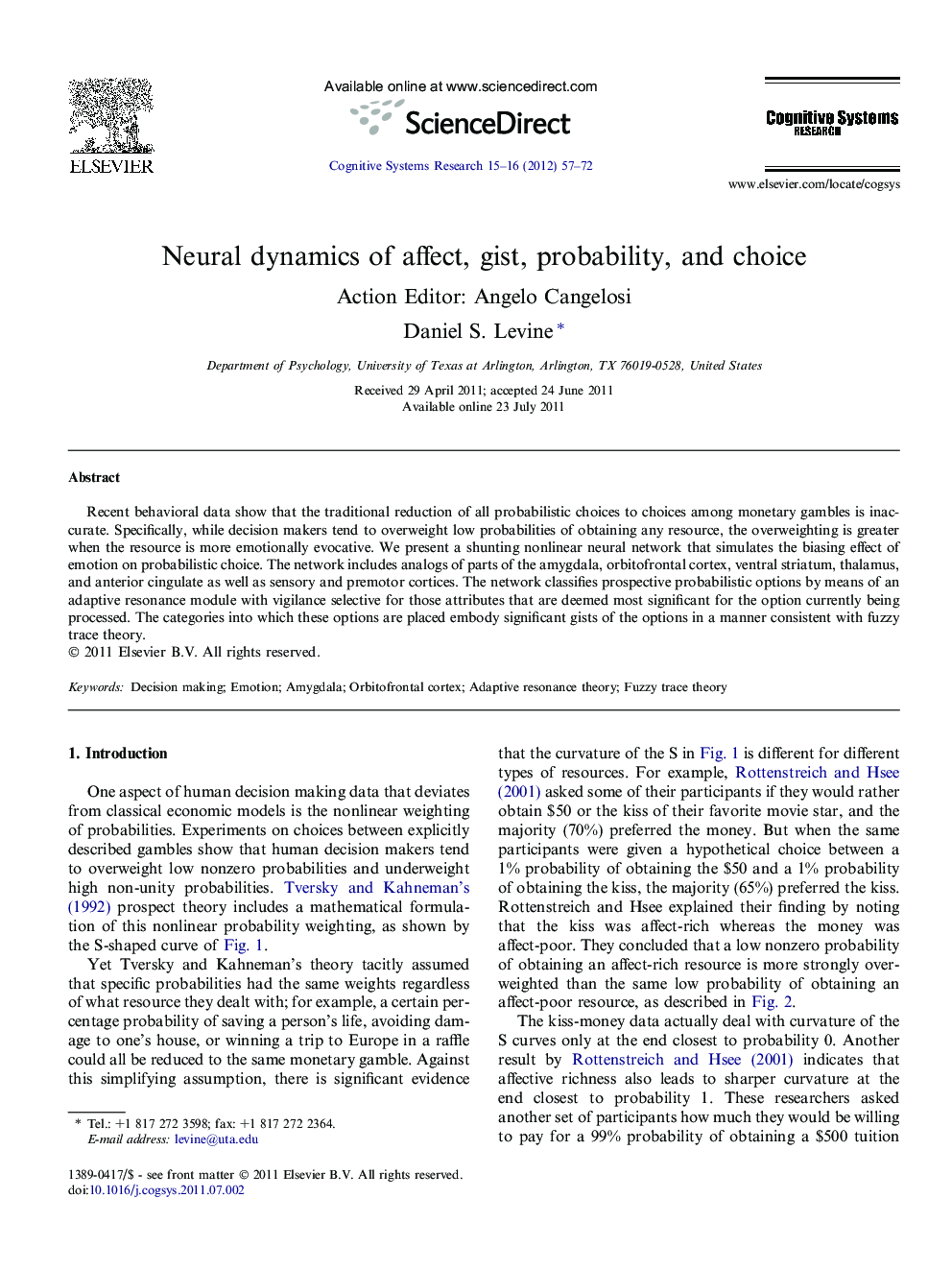| Article ID | Journal | Published Year | Pages | File Type |
|---|---|---|---|---|
| 378508 | Cognitive Systems Research | 2012 | 16 Pages |
Recent behavioral data show that the traditional reduction of all probabilistic choices to choices among monetary gambles is inaccurate. Specifically, while decision makers tend to overweight low probabilities of obtaining any resource, the overweighting is greater when the resource is more emotionally evocative. We present a shunting nonlinear neural network that simulates the biasing effect of emotion on probabilistic choice. The network includes analogs of parts of the amygdala, orbitofrontal cortex, ventral striatum, thalamus, and anterior cingulate as well as sensory and premotor cortices. The network classifies prospective probabilistic options by means of an adaptive resonance module with vigilance selective for those attributes that are deemed most significant for the option currently being processed. The categories into which these options are placed embody significant gists of the options in a manner consistent with fuzzy trace theory.
► Neural network model of Rottenstreich–Hsee data on affect and probability weighting. ► Money is preferred to kiss but preference reverses with low probabilities of each. ► Network includes analogs of brain executive and emotional regions. ► Levels of emotional arousal influence which attributes are attended to. ► Categorizations are consistent with fuzzy trace theory.
